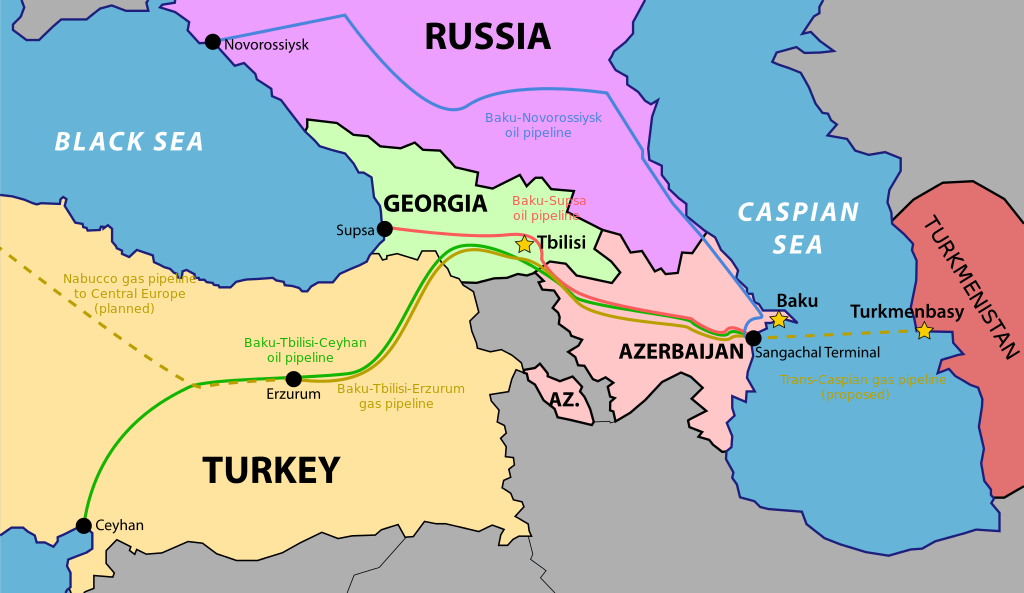The “Ethernal Fire” that burnt at natural gas fissures on the shore of the Caspian Sea were known about in the time of Alexander the Great, in the fourth century BC. But until the nineteenth century the eternal fire had never been harnessed or used.
The association between natural gas and mineral oil or petroleum was known about, and if natural gas was leaking out of the ground it was clear that there must be oil below. In 1823, drilling for oil started at the Caspian Sea port of Baku on the Aspheron Peninsula.
The production of oil started in a small way, but gradually expanded during the nineteenth century. In 1873, Alfred Nobel and his brother Ludwing invested capital enabling a refinery to be built; this curcial investment was to turn Baku into the world´s leading petroleum producer. The Baku oilfield was producing half of the world´s petroleum by 1900.
The oil industry became significantly more important once fractional distillation had been invedted. The Yale chemist Benjamin Stillman was the inventor of this new process. The effect was to “crack” crude petroleum into a range of useful products, varying in density from bitumen, which could be used for road-making, to lubricating oils and light fuels that could power internal combustion engines or be burnt in lamps.
The new process was a massive boost to the petroleum extraction and refining industries.
Petroleum production began in the United States at Titusville, Pennsylvania.
And unemployed railwya conductor named Edwin Drake was sent to Titusville by a New York banker. Using salt-well drilling gear, Drake´s men drilled down into oil-bearing rocks, striking oil on 28 August 1859.
Drake´s 21m deep oil well was soon producing 1,500 litres of oil a day, and this marked the beginning of the very first commercial exploitation of petroleum in the United States.
It inaugurated a new age in the history of North America, which turned out to be oil-rich; in a world that was to become increasingly oil-dependant in the twentieth centry as coal resources ran down, this meant that the United States became extremely rich. The availability of mineral oil, wich could be cracked to make kerosene (paraffin), also meant that a new age of kerosene lamps and stoves began, reducing the demand for whale oil.
The Baku oilfield continues to be the dynamo for the economy of the area, providing work in the drilling operation, the refineries and the associated chemical works.
The Baku oilfield played a crucial role in the Second World War.
Hitler´s drive to the east into Russia was in effect a thrust towards Baku. The German war effort was consuming huge quantities of oil and Germany had none of her own; annexing the resources of the Caspian Sea made perfect sense. Baku was producing over 24 million tonnes of oil a year in 1938. It was Baku that lured Hitler into engaging in war on a second front; it was a strategic error. He over-extended the German war machine. He also exposed his army to the ferocity of the russian defence. Because of his greed for Baku, Hitler endured the defeat of Stalingrad, and lost the war.

No hay comentarios:
Publicar un comentario
Si quieres hacer cualquier comentario, hazlo aquí,
Cualquier aportación sera bienvenida...